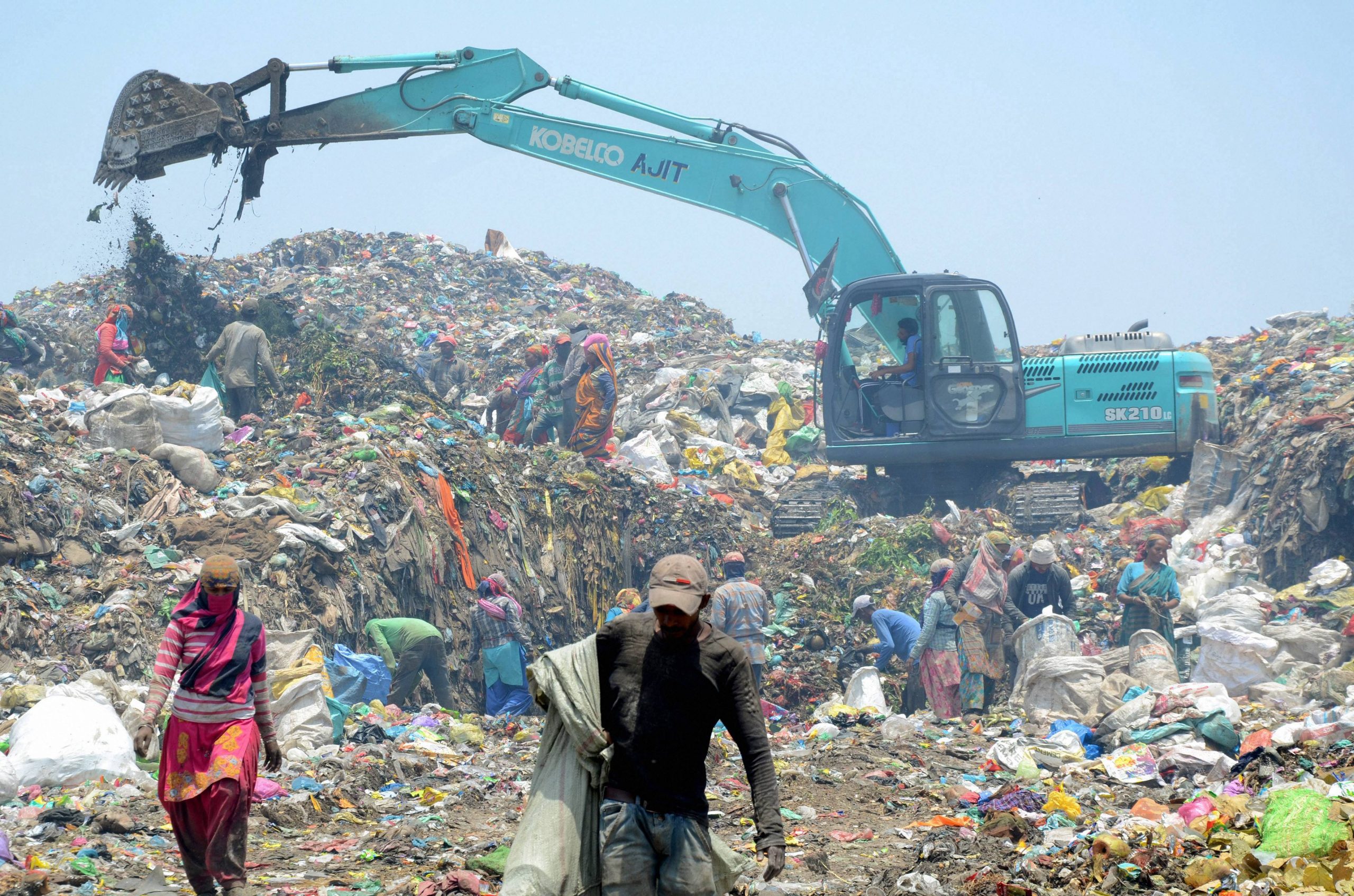Imagine all the trash bags that your house has thrown away this week. With this, the garbage every household generates in your neighbourhood for the entire week.
This is just a couple of houses in an entire block in a district in a city in a country, that is in the world. Just imagine how much garbage the whole world is generating on a weekly basis.
Also read: 5 pocket-friendly destinations in Europe
It’s as if 15 grocery bags filled with plastic trash piled up everyday on every single yard of shoreline in the world. That is how much land-based trash ended up in the world’s oceans in just one year.
a. What you wear
Often, we tend to forget that there is waste produced in the manufacturing process of the things we consume. This is referred to as upstream waste. Maybe it isn’t quite as ‘grammable’ as the typical zero-waste aesthetics of brown paper, glass, wood and unbleached cotton.
The shirt that you’re wearing did not just come in the box or plastic wrapper that it came in. Assuming it’s made of natural fibres, someone cultivated crops, tended to and harvested them. It was then turned into yarn, dyed and then woven into fabric. After the fabric was ready, it was tailored into a shirt and shipped to a warehouse before it reached you.
Also read: 5 most polluted cities in India post Diwali
After the shirt has worn out in years, it can be used as a night wear. Then, some years later, it can be repurposed to be made into a kitchen wipe or a mopping cloth instead of being tossed away.
b. What you consume
Minimize Food Waste: Revive leftovers, repurpose food scraps into jams and sauces, and stretch your food dollar by meal planning.
Compostable Items: fruit and vegetable parts, eggshells, coffee grounds, unbleached paper, tea bags, disease-free houseplants, and much more.
Also read: Replace your multi-vitamins, have gummies instead. Here’s why
Avoid Ordering Food: Bring you own lunch and utensils when in office. Disposable lunches (to-go packaging, traditional plastic utensils, etc) generate a lot of waste.
c. What you use
Ditch plastic packages: Glass and stainless-steel containers of all shapes and sizes can be cleaned and reused over and over again, and easily transported. Instead, use regular reusable dishes.
If you need a single-use option, several retailers offer certified compostable paper plates, bowls, cups and napkins.
Also read: Cats and Dogs can be infected with Alpha variant of COVID 19
Eliminate disposable paper products: Rather than paper towels and napkins, choose reusable cloth versions. You’ll quickly save money over costly disposables.
Avoid plastic bags: Start using big shopping bags made from canvas, mesh, cloth or recycled/recyclable plastic.
Use glass jars: Use reusable containers such as mason jars for bulk loose items such as rice, granola, grains, oatmeal, dried fruit, and beans.
It may appear a tall task to begin with. But with the way our environment is getting irreparably damaged, this is perhaps the last resort to save the planet.







